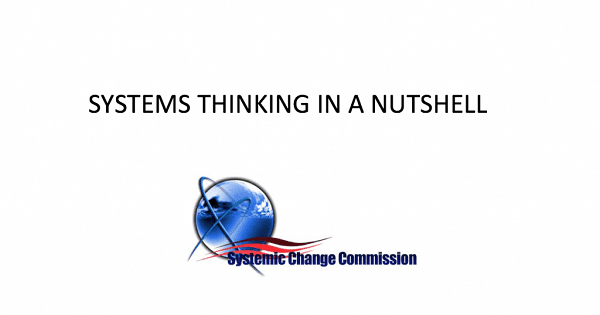Five Maxims – From Systemic Change Commission
The Vincentian Family Systemic Change Commission offers five maxims crucial to systems thinking.
- A good systems thinker knows that nothing happens in isolation. When she thinks about an action she’s about to take, she asks herself, “And what else will be affected by this? What else will result from my action?”
- A good systems thinker resists the temptation to react to events as they occur, but instead asks herself, “Does this event feel familiar—is it part of a pattern of similar events?” And if it seems to be part of a pattern of events, she asks herself, “What is causing all of these events—is there something in our structure that could be changed and would then make these events less likely to occur?”
- A good systems thinker is aware of people’s different locations in the system, and crafts her actions to work well for people in all locations. She is sensitive to the distorted perceptions of each location (including her own), and takes those into careful consideration as she chooses her strategies for intervening in the system.
- A good systems thinker looks at life as a video rather than as a snapshot. In working with a situation, she asks: – What has happened in the past that is influencing this situation (not just from my perspective, but from the perspective of other participants)? How can I choose my actions so they build on positive past experiences, without triggering reactions to negative past experiences? – If I take the action I’m considering, what will happen next? And what will happen after that? Am I satisfied with these consequences? If not, can I tweak what I’m about to do to limit the negative consequences?
- A good systems thinker looks for high leverage interventions. Knowing that there are many ways of moving a situation, she doesn’t just settle on the first strategy that occurs to her, but explores a variety of strategies, thinking through the implications of each. She particularly asks herself, “How am I a part of this system? How am I contributing to its negative character, its positive character? What can I do to strengthen the system and nudge it in a positive direction?”
Questions for Reflection
- Can we think of situations in our experience of our congregation that demonstrate these principles?
- If we look at a complicated or difficult situation that we will be facing in the near future, do any of these principles suggest places where our decision making would be helped by systems thinking?
The above maxims are available in slightly longer word document or an eight slide PowerPoint presentation.
Simply visit this link. See also the whole collection of practical and down-to-earth resources







0 Comments